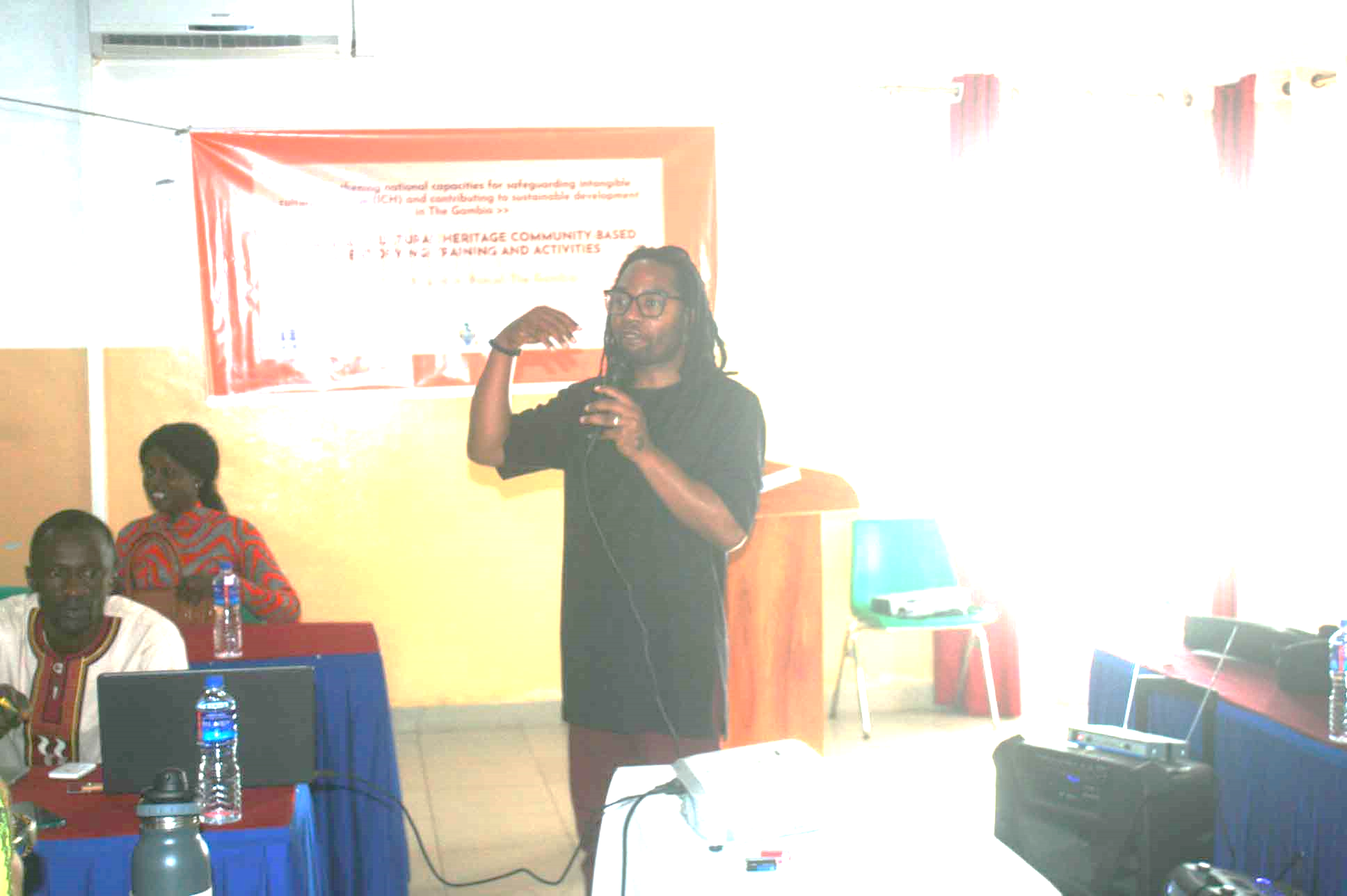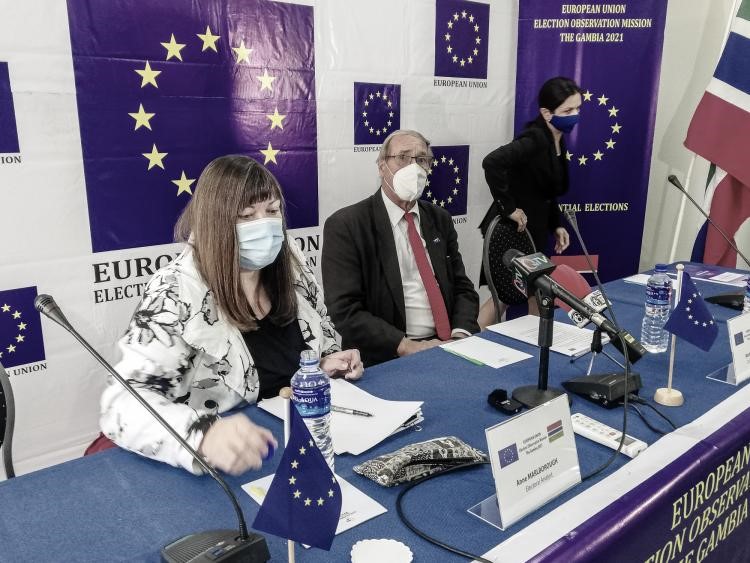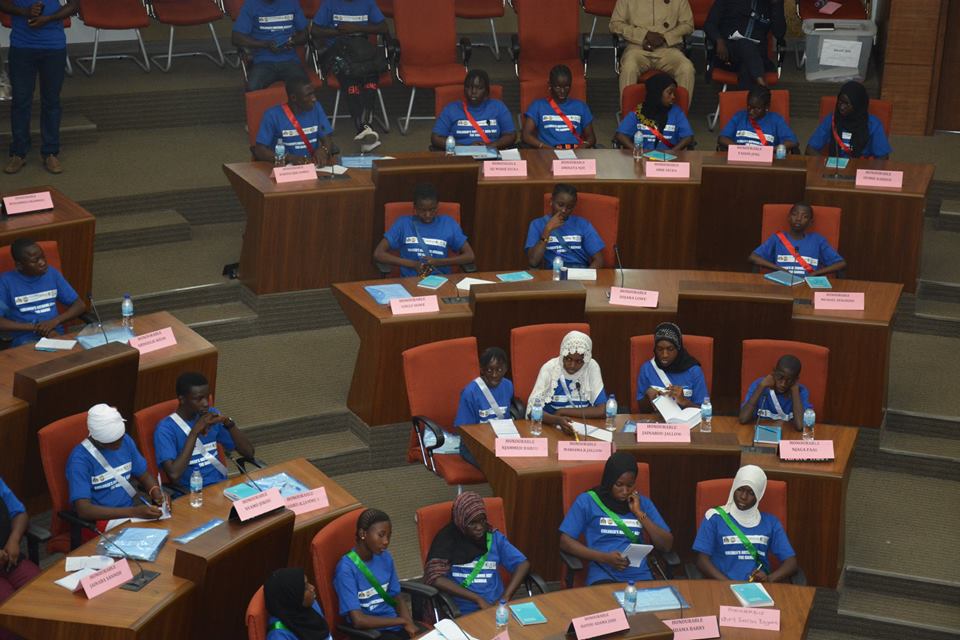By Yunus S Saliu
As part of ethical principles for safeguarding Intangible Cultural Heritage (ICH), Gankhanani Moffat Moyo, Supporting ICH Facilitator at the ongoing ICH inventorying training has pointed out to the trainee that it is the right of the communities to ensure the viability of their ICH should be recognized.
The weeklong training on Intangible Cultural Heritage (ICH) Community-Based Inventorying training is part of the NCAC organised program under the UNESCO project titled strengthening national capacities for safeguarding ICH and contributing to sustainable development in The Gambia.
Explaining the ethical principles for safeguarding ICH, Mr. Moyo whose presentation was centered on ethics in community-based inventorying said communities should have the primary role in safeguarding their ICH; mutual respect for ICH should prevail in interactions between States and communities; all interactions with communities should be transparent and with free, prior, sustained and informed consent.
Still, on the ethical principles for safeguarding ICH, he outlined that access of communities to objects, spaces, and places necessary for expressing ICH should be ensured, communities should assess the value of their ICH, and “communities who create ICH should benefit from the protection of the moral and material interest resulting from their ICH while the dynamic and living nature of ICH should be respected.”
In addition to that, he said communities should assess the impact of any action on the viability of their ICH and the communities themselves, and communities should determine threats to ICH and decide how to prevent and mitigate these. And at the same time, cultural diversity should be fully respected and safeguarding of ICH should be done in cooperation with all key stakeholders.
On key aspects of ethics in community-based inventorying, he explained that ethics is culture-specific it usually refers to engagement with ‘the other’ – ethnographic research and ethics statements of professional bodies, achieves, museums, and so on.
However, when it comes to data collection, he said permission is required – to record, take photographs, interview and participate and “permission is required for future use regarding publish – educational use, publicity, and broadcast – radio, TV, internet, archive, share with others, research and learn/perform.”
Among other topics that he discussed under ethical principles for safeguarding ICH include the meaning of ethics; rights and respect; creating an environment of trust; ethical and legal issues; ICH ownership; individual and community rights; different types of community participants; core values of community-based inventorying and so on.




